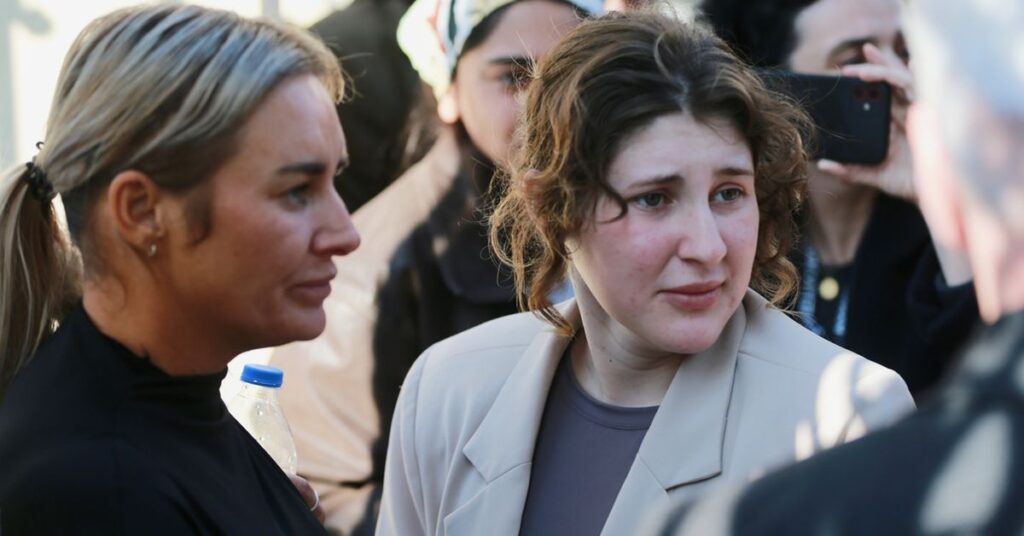
British teenager Bella May Culley, who was arrested in Georgia on charges of drug smuggling earlier this year, has been released from prison following a plea deal. Culley, 19, who is pregnant, was apprehended in May at Tbilisi Airport, accused of attempting to smuggle 12 kilograms of marijuana and two kilograms of hashish into the country.
On Monday, a Georgian court found her guilty and sentenced her to five months and 25 days in prison, the duration she had already spent in custody. As part of the plea agreement, her family paid a 500,000 lari fine, approximately $282,000. Culley and her mother, Lyanne Kennedy, were visibly emotional as the verdict was read, embracing at the conclusion of the hearing.
The Legal Proceedings and Plea Deal
Georgian prosecutors had initially considered a two-year sentence for Culley, but ultimately “decided to consider the time she has already served,” according to case prosecutor Vakhtang Tsalughelashvili. “We reviewed the case, taking into account the confession of the accused, her age and condition, and ultimately, the parties reached an agreement,” he told The Associated Press.
Culley was informed of the decision shortly before the court session commenced. Her mother expressed her surprise, stating she had anticipated only seeing her daughter again when her grandchild was born. In a light-hearted moment, she joked about naming the unborn child after Culley’s lawyer, Malkhaz Salakhaia.
Salakhaia confirmed that Culley would receive her passport back and would be free to leave Georgia. The lawyer remarked that the court “made the decision they had to make” given the circumstances. “Bella was sincere throughout the investigation,” Salakhaia added.
Background and International Implications
Culley, hailing from Teesside in north-east England, had been reported missing in Thailand prior to her arrest at Tbilisi airport on May 10. After her arrest, she pleaded not guilty, claiming she was tortured in Thailand and coerced into transporting the drugs. Salakhaia reported that Culley displayed visible signs of torture upon her arrival in Georgia.
Initially, Culley faced a maximum penalty of up to 15 years or life in prison. However, in Georgia, a nation of 3.7 million located in the South Caucasus, the legal system permits financial plea agreements that can mitigate or eliminate prison sentences in certain cases. Such agreements are frequently employed in drug-related offenses.
Expert Opinions and Legal Context
Legal experts in Georgia note that the country’s approach to drug-related offenses often involves plea deals, particularly when mitigating circumstances are present. “The use of financial settlements in drug cases is not uncommon here,” said Giorgi Kapanadze, a Georgian legal analyst. “It reflects a pragmatic approach to justice, balancing punitive measures with rehabilitation and financial restitution.”
The case has drawn attention to the broader issue of drug trafficking and the vulnerabilities of young people who may be coerced into such activities. International human rights organizations have expressed concern over the treatment of individuals like Culley, highlighting the need for greater protections against exploitation and torture.
Looking Ahead
As Culley prepares to return to the UK, her case underscores the complexities of international drug trafficking laws and the human stories behind them. It also raises questions about the support systems available to young people who find themselves in precarious situations abroad.
The resolution of Culley’s case may set a precedent for similar cases in Georgia, particularly those involving foreign nationals. As the country continues to navigate its legal frameworks in the context of international law, the balance between justice and compassion remains a focal point of discussion.
For now, Bella May Culley is expected to reunite with her family in England, where she will prepare for the birth of her child, leaving behind a tumultuous chapter in her life.







